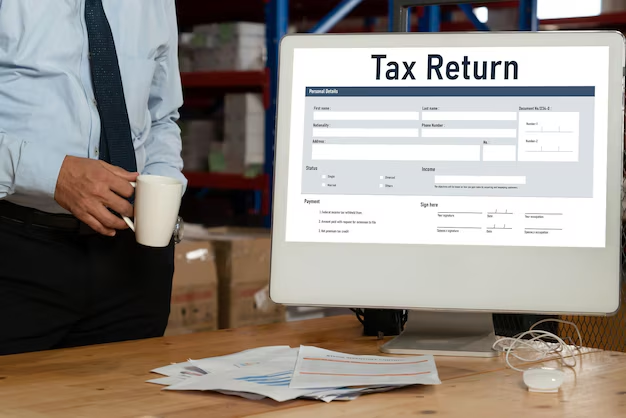Understanding Georgia's State Tax System: All You Need to Know
Thinking about relocating to the Peach State or simply trying to understand your tax obligations if you're already a resident? With taxes being one of the less glamorous aspects of life, grasping the intricacies of state tax laws can feel daunting. Rest assured, this guide will walk you through Georgia’s state tax system in a clear, friendly, and comprehensive manner. Whether you're a newcomer or a seasoned resident, you'll find valuable information here.
Does Georgia Have State Tax?
Yes, Georgia imposes a state tax. The state of Georgia levies a variety of taxes on individuals and businesses. These taxes ensure the operation of public services, infrastructure maintenance, and the overall economic well-being of the state. As a resident or business owner in Georgia, understanding these taxes is essential to ensure compliance and optimize your finances.
Components of Georgia's State Tax System
Georgia’s tax system comprises several key components. Let’s dive into each of them to offer you a full picture.
Income Tax
Income tax is perhaps the most familiar aspect of state taxation. Georgia imposes a progressive income tax, meaning the rate increases as income levels rise.
- Tax Rates: The rates range from 1% to 5.75% for individuals, based on income brackets.
- Filing Requirements: Residents earning above a specified threshold must file annually.
- Deductions & Credits: Georgia offers various deductions and credits, such as those for education, green energy, and retirement contributions. Make sure to explore these to maximize your post-tax income.
Sales Tax
Sales tax in Georgia is another significant part of the state tax structure.
- Base Rate: The state mandates a base sales tax rate of 4%.
- Local Additions: Counties can levy additional sales taxes, making the total rate range from 6% to 8%, depending on where you are.
- Exemptions: Essential items like groceries sometimes have reduced or exempted sales taxes, easing the burden on everyday expenses.
Property Tax
Owning real estate in Georgia comes with property tax liabilities, which fund local services such as schools and emergency services.
- Assessment Rates: Property assessments occur periodically to determine taxable value.
- Homestead Exemptions: Homeowners can qualify for exemptions that reduce taxable property value, particularly those over 65 or with disabilities.
Corporate Income Tax
For businesses operating in Georgia, understanding the corporate tax rate is vital.
- Flat Rate: Georgia imposes a flat corporate income tax of 5.75%.
- Apportionment Formula: Businesses pay taxes based on a formula considering sales, property, and payroll in Georgia compared to nationwide totals.
Diving Deeper: Related Subtopics
To truly understand how Georgia's state taxes impact your life, let's explore some related subtopics that add depth and context.
Filing Your Taxes: Tips and Tricks
Filing taxes can be confusing, but with the right strategies, you can make the process smoother.
- Organized Record-Keeping: Keep meticulous records of your income, expenses, deductions, and credits throughout the year.
- Use Tax Software: Consider using Georgia-compatible tax software for accurate and efficient filing.
- Seek Professional Help: For complex situations, consulting a tax professional may save you both time and money.
Tax Changes and Updates
Tax laws can change, affecting your liabilities and benefits. Staying informed is crucial.
- Stay Updated: Follow Georgia’s Department of Revenue announcements for changes.
- Adjust Withholding: If tax rates or brackets change, adjust your employment withholding to avoid surprises at tax time.
Impact of State Taxes on Lifestyle and Budget
Understanding and planning for state taxes aids in making informed life choices.
- Housing Decisions: Consider property tax rates when buying a home in different parts of Georgia.
- Investments: State tax implications can affect investment decisions, particularly regarding retirement accounts.
Tax Incentives and Relief Programs
Georgia offers various incentives and programs to alleviate tax burdens.
- Tax Credits for Education: Families and individuals benefiting from education-related expenses might qualify for credits.
- Energy Efficiency Exemptions: Installing solar panels or similar energy solutions can merit tax breaks.
Visual Summary: Quick Tax Tips for Georgia Residents
Here's a handy visual summary to simplify some key points:
Georgia State Tax Cheat Sheet:
- 📊 Income Tax Rates: 1% - 5.75%
- 🛍️ Sales Tax Rate: 4% + local taxes
- 🏠 Property Tax: Varies; check local assessments
- 📈 Corporate Tax: Flat 5.75%
- 💡 Key Tip: Explore deductions and credits for potential savings.
- 🧐 Keep Updated: Track changes to tax laws for compliance.
Strategic Financial Planning with Georgia Taxes
Achieving financial goals requires understanding and strategically managing your tax situation. Here are steps to take charge:
- Set Financial Goals: Align your savings and investment strategies with your tax situation.
- Maximize Deductions: Scan for deductions related to healthcare, education, and charitable giving.
- Budget for Taxes: Regularly set aside funds to fulfill your tax obligations without disrupting your cash flow.
Once comprehensively understood, Georgia's state tax provisions can be navigated with confidence. By being proactive, staying informed, and leveraging available resources, you can optimize your financial standing and effectively management Georgia's tax environment.
With this knowledge, you can now maneuver the maze of state taxes, ensuring you fulfill your obligations while taking full advantage of incentives and deductions Georgia offers. Good luck on your financial journey in the Peach State!

Related Topics
- Am I Tax Exempt
- Are 401k Contributions Tax Deductible
- Are 529 Plan Contributions Tax Deductible
- Are Attorney Fees Tax Deductible
- Are Campaign Contributions Tax Deductible
- Are Charitable Donations Tax Deductible
- Are Church Donations Tax Deductible
- Are Churches Tax Exempt
- Are Closing Costs Tax Deductible
- Are Contributions To 529 Plans Tax Deductible
